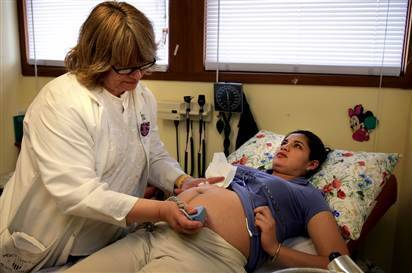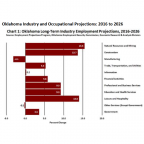What is an Advanced Practice Nurse?
An advanced practice nurse (APN) is a nurse with a masters, post masters or a doctoral degree in nursing specialty. They help to meet the demand of specialty healthcare practitioners in areas under-served by physicians especially in the rural areas as they can practice medicine without being supervised by a physician.
There are four types of advanced practice that represent the highest level of specialization in a nursing career, namely: nurse practitioners, nurse mid wives, clinical nurse specialists and nurse anesthetists.
- Nurse Practitioners
This is the most common type of advanced practice nurse, they represent over half of APN. They are qualified to provide a wide range of acute and primary health care services and can diagnose as well as treat medical conditions similar to those performed by a physician including writing prescription.To become a nurse practitioner, students need a Masters of Science in Nursing (MSN), Doctorate in Nursing Practice (DNP) or a post masters in any of the following specialties:
- Women's health
- Mental or psychiatric health
- Pediatrics
- Neonatal Care
- Acute Care
- Family Practice
- Adult Practice
Licensing in each state varies and includes different titles such as Advanced Practice Registered Nurse (APRN), Advanced Practice Nurse (APN), Licensed Nurse Practitioner (LNP) and Certified Nurse Practitioner (CNP). All states apart from Indiana, Kansas and California from 2012 require nurse practitioners to be certified by a national certifying organization of nurses.
-
Clinical Nurse Specialist
While a nurse practitioner provides primary health care to patients, a clinical nurse specialist works in a more specialized area of nursing practice. A CNS is responsible for diagnosis and treatment of health or illness states, health promotion, disease management and prevention of illnesses among communities, groups, families and individuals.
Each state has its own requirements when it comes to licensing of clinical Nurse Specialist that often involves a master's degree and certification as a clinical nurse specialist.
-
Nurse-Midwife
Nurse midwives are responsible for providing health care to women above adolescent. In addition to this, they provide family planning and gynecological services including postpartum care, childbirth, pregnancy and family planning services. They can also treat men for sexually transmitted diseases.
To become a nurse mid wife requires students should complete a graduate program which involves taking an examination offered by AMCB (American Midwifery Certification Board).
-
Nurse Anesthetist
These are advanced practice nurses qualified to administer anesthesia for surgery or any other procedure as well as provide pre and post surgery care.
To become a nurse anesthetist, students should complete a graduate program that prepares them to become a (CRNA) Certified Registered Nurse Anesthetist through the NBCRNA (National Board of Certification and Recertification for Nurse Anesthetists).
What is the Need for Advanced Practice Nursing?
Picture this: You wake up one morning with terrible flu symptoms and call your doctor. Unfortunately, s/he is out of town, but his/her nurse practitioner is available instead. The nurse examines you, prepares a culture for your throat, writes you a prescription, and then sends you on your way to recovery.
Today's APNs perform tasks that were once the preserve of doctors. They manage patient care and assist other medical professions, with some specializing in fields such as oncology (cancer) or pediatrics (children and teens).
Advanced Practice Nurse Education
To become an advanced-practice nurse, students will first have to earn a graduate degree in nursing. Generally, only applicants with a bachelor's degree in nursing are eligible for graduate programs. Such students must be equipped to:
- Take an extra 2 to 3 years of postgraduate study to specialize in a nursing field
- Study, sit, and pass a specialty test in addition to the National Licensure Exam
- Counsel and examine patients
- Diagnose health problems
- Issue prescriptions
- Abide by the right guidelines in order to protect patients and practice employees against work-related dangers and disease
- Possibly run a paramedical practice
It also helps to be detail-oriented, sympathetic, caring, and able to make logical, quick decisions. An advance practice nurse must also be able to cope with suffering, stress, and emergencies- and remain level-headed throughout. Remember, the job of an APN is to encourage patients to get well, and in some instances, help let them go.
Tips for Future APNs
- Make your high school years count
- Enhance your communication skills through speech classes, drama, and English composition
- Take plenty of challenging science and math courses all through high school
- Study a foreign language so as to be able to communicate and reach out to different patients and communities
- Volunteer at a hospital, health/women's clinic, or a geriatric facility.
APN Career Outlook
Government economists project job growth for advanced-practice nurses to be faster than the average for all careers right through to 2020. And because advanced practice nurse education offers numerous opportunities in the profession, it should add more new jobs than any other career. Prospects for advance practice nurses should be excellent, especially in low-income and rural areas, which have a hard time attracting nurses and doctors.
Advanced Practice Nursing Salaries
It is easily understandable why one would want to pursue a full time career as a Nurse Practitioner especially for the higher salary is offered. For most people, however, being a nurse practitioner means more than generous salary associated with the position. It is the chance to be able to help people with their medical problems that attracts most people in taking this type of job.
In the same way that the Nurse Practitioner Salary differs from State to State, the functions and tasks to be performed may also vary from one state to another. Both the salary and duties and tasks that can be performed depend on the person's area of specialty. Clearly, nurse practitioner belongs to the advanced practice nurse category, which means they received at least a master's degree that includes a detailed training beyond what is normally required to obtain a nursing license. Nurse practitioners receive advanced training in the diagnosis and management of common and complex medical conditions. According to state law, a doctor can prescribe medications and perform other tasks and duties as regular nurses are restricted from performing.
Academic preparation for Advanced Practice Registered Nurses is strict. Advanced Practice Registered Nurses work hospitals, nursing management staff and departments at other types of organizations. They can work directly with patients at home as essential caregivers.
Advanced Practice Registered Nurse Tasks
- Order and Interpret test results and recommend patient treatment
- Conduct comprehensive medical examinations, give treatment and counsel to patients
- Prescribe treatment or medicine with a physician's approval
- Provide doctors with help during surgery or complex medical procedures.
As per Payscale.com, advanced practice nurse salary was $83,524 as of December 2014. The Bureau of Labor Statistics predicts a higher growth rate than the normal occupation for all Advanced Practice Nurses between 2012 and 2022, the projection of a probable increase in employment of 31% throughout the decade.
Many employers offer such additional benefits and flexible working hours, child care on site, tuition reimbursement and performance bonuses. About 21 percent of registered nurses are members of a union or covered by a union contract.
Nursing is a profession in demand, and the advanced practice nurse salary is looking up. Some hospitals are downsizing or replacing less qualified staff, but the future of this profession still looks much better than most others. Thus making Advanced Practice Nurse an attractive profession preferred by many.
Advanced Practice Nurse vs. Registered Nurse
Both an advanced practice nurse (APN) and registered nurse (RN) provide direct nursing care but they differ in their practice scope and responsibility levels. Advanced practice nurses are the most highly trained nursing practitioners and are licensed to practice medicine without physician supervision. They usually play the role of specialty and primary healthcare practitioners in areas with limited physicians. Registered nurses administer treatment and medication and provide educational medical advice to their patients.
Registered Nurse Education
Level of education is a significant difference in the advanced practice nurse vs registered nurse discussion.
A registered nurse typically has a bachelor's of science in nursing, an associates degree or diploma in nursing. These educational programs consist of courses in physical science and social behavior. RNs also get clinical experience in diverse workplaces.
RN Licensing and Certification
RNs need nursing licenses for which they can qualify after completing accredited nursing programs. A registered nurse is also supposed to pass the National Council Licensure Examination (NCLEX-RN) before they get licensing. An RN can choose to get certification through specific professional association. Certification is voluntary but it may be necessary for an RN to advance in their career.
RN vs APN Job Duties
An RN administers treatment and medication to patients. They also coordinate patient care plan, conduct diagnostic tests, and evaluate results. Registered nurse offer condition management advice after treatment. They also supervise other nursing staff including home-care aides, nursing aides, and licensed practical nurses.
Nurse practitioners make up most of the APN nurses. They provide acute and primary healthcare services. They are qualified to diagnose, provide treatment, and write prescriptions. Some of the nurse practitioners specialties include pediatrics, mental health, and gerontology.
Clinical nurse specialists offer primary care and they can work in various settings including emergency rooms and critical care. Some of them specialize in specific populations while others focus on diseases such as diabetes, eating disorders or oncology.
The most important aspect in the advanced practice nurse vs. registered nurse debate is that both play vital roles in health care. Many RNs can advance to become APNs when they get additional training.
Related Articles










